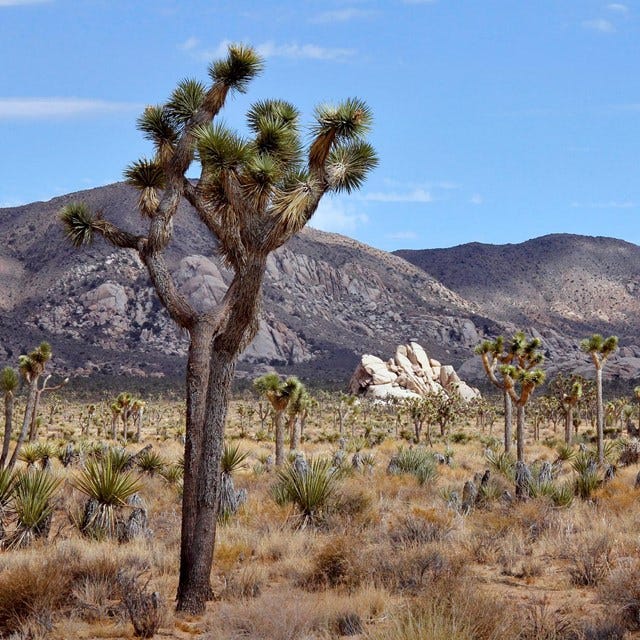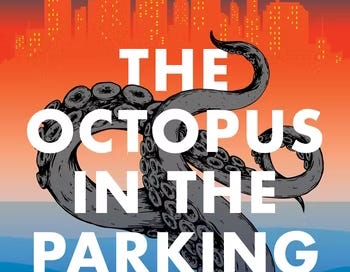The Octopus in the Parking Garage: A Call For Climate Resilience
Rob Verchick
Columbia University Press
288 pages
As you might expect, author Rob Verchick opens The Octopus in the Parking Garage with just that, the bizarre occurrence of an octopus found swimming in a garage. This scene unfolded in Miami, a city that has become a poster child for climate change and sea level rise because of what locals call “sunshine floods,” when the ocean waters of king tides inundate streets, neighborhoods, and yes, parking garages. Seeing an octopus where we normally find Toyotas and Subarus highlights “the elephant in the room” craziness that our climate crisis has reached. Like the elephant, that out of place octopus is telling us: there are big problems; they aren’t being talked about enough; and something needs to be done.
A climate law scholar at Loyola and Tulane Universities in New Orleans, Verchick says that we need to start talking about climate change resilience; i.e., how we handle and even bounce back from the challenges and changes brought about by climate change. He brings a lot to the table on this topic. He worked in the Obama administration creating climate resilience policies. He also makes communities resilient through his work at the Center for Progressive Reform. Other folks, such as Michael E. Mann, Bill McKibben, and both the popular and environmental press, focus on getting us to break our addiction to fossil fuels. Verchick is one of the few voices talking about resilience.
At one time, the subject of adapting to a climate-changed world was almost taboo among folks fighting climate change. They saw it as distracting from the main goal of reducing emissions. Some viewed working on resilience as a capitulation to the fossil fuel industry. In 1992, Al Gore denigrated climate resilience as a “kind of laziness.” (Verchick notes that Gore has since changed his position.)
As the topic of resilience gains acceptance, folks are taking more action. Cities are cooling themselves against rising temperatures with urban tree canopies. Conservationists are using innovative techniques to adapt wildlands to higher temperatures and other climate stressors. And yet there are big, difficult problems that conservationists, urban planners, cities, states, and the federal government need to work on and work harder on. These are the big problems, the octopuses in the parking garages, that Verchick concentrates on with his new book.
These problems receive less attention possibly because they are maddeningly daunting, mostly because there are so many unknowns. So where do we even start? Are the seas rising three feet? Six feet? More? Shall coastal cities build sea walls? Or is retreat the best option? If people move, will their new homes be plagued by other calamities brought about by climate change, such as heat waves and wildfire?
This is a book about getting thing done, which requires consensus. When it comes to getting people on-board, folks involved in fighting climate change, keep stumbling over the same block. (In this group I include myself.) We have believed that if you state the facts—scientists found CO2 to be a greenhouse gas over a century ago; we are pumping more and more of the gas into the atmosphere every year; and, yes, temperatures are rising all over the world—that it will be easy to get everyone to join the effort to reduce emissions. Verchick explains that the “just the facts, Ma’am” approach doesn’t work for most people. Individuals perceive risks, such as climate change, through the lens of their values and worldview. Building resilience against climate change requires advocates, policy makers, and politicians to adopt a more meaningful way to explain the crisis. If hunters wearing MAGA hats can understand climate change through hunting stories, talk to them about changes to hunting ranges due to climate change.
Yes, there really was an octopus in a parking garage.
Devoting an entire chapter to emphasize this point, Verchick says, above all, resilience in policy and practice needs to be fair, built for poor and minority communities on an equal footing with the wealthy and well-heeled.
Whether he’s kayaking through the swamps of Louisiana or scuba diving amid the corals off the coast of Florida, Verchick deftly illustrates how our greenhouse gases are mucking things up. Add in other factors like the channelization of the Mississippi and an irresponsible oil industry, and you have a recipe for vast destruction of wetlands in Louisiana. Add invasive cheatgrass to the southwest, and that makes for the Joshua trees succumbing to large wildfires—something unheard of until recently—and the possible extirpation of the trees from Joshua Tree National Park

.
A gifted writer, Verchick also comprehensively explains the laws, policies, and current politics without getting bogged down in details. He even makes the U.S. power grid interesting (OK, sort of interesting). He enlivens the book with personal experiences from his childhood in Las Vegas and his current home in New Orleans. Cultural references range from Star Trek’s Captain Picard to Shakespeare and even Friedrich Nietzsche.
Despite the overwhelming scope of the problems that Verchick addresses, the tone of the book is remarkably upbeat. He ends each chapter with courses of action or legislation needed to build resilience. In some examples, as with Louisiana’s coastal residents, he describes the work of many disparate individuals and interests coming together to build resilience for their communities and environments. His call to action to his readers at the book’s close is pitch perfect.
Notes on editing, proofing, and indexing
I have reviewed books for a couple of years now, and with this review I’d like to start something new, recognizing the work of the people behind the book. I’d like to commend editor Miranda Martin and copyeditor Gregory McNamee. The book was well organized. The writing was crisp, free of over explanation, redundancies, or other traps that we writers fall into. My guess is that Rob Verchick is an excellent writer, but copyeditors help a lot. They are worth their weight in gold. The book was relatively free of typos. I found only eight in the 225 pages of text. The indexing is comprehensive and complete. References are drawn almost entirely from primary sources and fill out the main text well.







Important to do this. In Santa Barbara, after our catastrophic fire in 2017 followed by a worse mudslide in early 2018, a local man started the Bucket Brigade, volunteers dug out houses filled with mud. That group has now started another team of "second responders:" volunteers who will help first responders in search, rescue and recovery. When I asked a local minister what she learned from these events, she replied, "To give the fire marshell keys to my church."
It seems we've always been employing a strategy of climate resilience. It's just that now the climate is changing faster and both predictable and unpredictable ways.